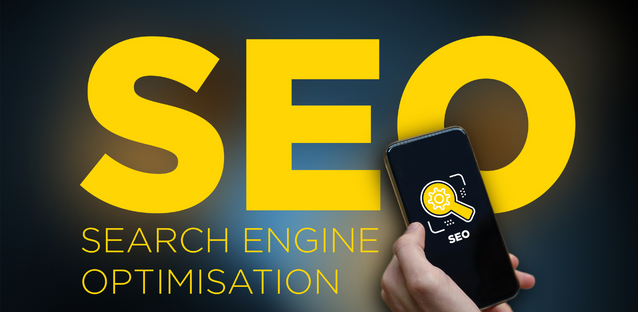Search engine optimization (SEO) benefits all organizations. But it is more significant for small businesses dealing with various marketing challenges.
If you’re one of these fledgling enterprises, here are seven ways this high-impact digital marketing strategy supports your promotional efforts.
7 SEO Benefits to Startups and Small Enterprises
How does optimizing your website for search engines make sense when your company has limited means? Let’s count the ways.
1. SEO Is Cost-Effective in the Long-Term
SEO isn’t cheap. Hiring a digital marketing agency, for example, might cost you around $2,000 a month, at least.
You don’t see results immediately, either. Usually, the waiting time is at least half a year. Sometimes it gets more complicated when navigating search algorithm changes or updates.
SEO is more cost-effective in the long run for the following reasons:
- Ease paid ad spending. If you rank organically, you no longer need to spend a lot on paid ads, such as pay per click. Over time, the money you save can cover the cost of your SEO campaigns.
- Tweak methods only when necessary. The beginning is always the hardest. But once you have executed a solid SEO plan, it requires less effort later. You may only need to adjust your tactics accordingly.
- Support inbound marketing. Good SEO encourages people to come to you, not the other way around. In turn, you spend less money on more aggressive marketing.
2. Optimization Is the Foundation for Most Online Marketing Techniques
SEO is the basis of your digital marketing efforts. It is the starting point for other initiatives:
- For content marketing, SEO identifies the topics relevant to your target market. You can then produce blog posts or infographics around these subjects to attract more organic traffic.
- The same goes for social media marketing. It helps you determine the social media channels where your target market is most active. You can then focus your efforts on these platforms to generate leads and sales.
- Email marketing also relies on SEO to some extent. The list of email addresses you can use for your marketing campaign is limited to those who have visited your website. SEO can help you expand it by attracting more web visitors.
3. SEO Helps Improve Consumer Trust
Trust is the online world’s most valuable currency, especially in times of change like the COVID-19 pandemic. And this is a critical factor that small businesses can bank on with the help of SEO.
Here are the different ways SEO boosts your credibility and trustworthiness online:
- You can generate quality backlinks from authoritative sources. Nothing says you’re reliable and knowledgeable than getting a backlink or mention from trusted websites. Consider it a vote of confidence.
- Useful content helps your target market. People use search engines to look for information. Creating helpful content like case studies, product reviews, and resource pages shows that you want to be of service.
- Good SEO drives you to the top position in a query. Occupying the most coveted spot when someone searches for data using your targeted keyword implies that you’re the best resource out there.
- Google “vets” you. The mighty search engine has many parameters in place to ensure only the best sites appear in the search results. Appearing on the search engine results pages (SERPs) means you meet its quality standards.
4. Optimizing for Search Engines Is a Scalable Tactic
Businesses should keep up with the changes if they want to remain relevant. But doing so is often more difficult for small ones like you. You have fewer resources, which means you can’t be everywhere at once.
This is where SEO comes in handy. It is a scalable marketing technique. You can start small and then adjust your methods as you go along without breaking the bank.
Here are some of the reasons why SEO is scalable:
- You can produce quality content regularly. You don’t need to wait for a large budget to create blog posts, infographics, or e-books. Plus, when optimized properly, your content will continue to appear on the SERPs, delivering traffic and leads.
- Your business can use various tools to measure your progress. Google Analytics and other webmaster tools are free. You only need to invest in more expensive software when you’re ready to scale up your SEO campaigns.
- You can outsource some tasks. You don’t need to do everything on your own, especially the technical ones. Once you’re ready to take your SEO efforts to the next level, you can hire an expert to help you.
5. SEO Promotes Better User Experience (UX)
Good user experience equates to customer retention or loyalty, which matters a lot for small businesses.
Multiple types of research have already shown that it is less costly to market to existing clients. It even generates more revenue because of social proof and word-of-mouth advertising.
But how does SEO develop a more positive customer experience?
- It promotes mobile optimization. The best SEO tactic will always include optimizing for mobile devices. It improves your Google ranking and makes your website more accessible to people who use smartphones to search the web.
- SEO encourages you to use engaging visuals. A better user experience also involves using multimedia content like images, videos, and infographics. That’s because the human brain processes visuals faster than plain text.
- It pushes you to create fast-loading pages. No one likes waiting for a slow website to load, regardless of how useful your content is. Google also penalizes sites with lousy page speed, making it more difficult for them to appear on the SERPs.
6. It Helps Generate Targeted or Quality Leads
One of the biggest marketing challenges for small businesses is acquiring quality leads. After all, you have limited resources, from budget to a marketing team.
The good news is that SEO is highly proficient in delivering targeted traffic in two ways: optimizing for local searches and matching your tactics to your customers’ journey.
Let’s expound on each. First, local SEO. How does it work?
- Google uses the searcher’s location to provide more relevant results. If you’re a brick-and-mortar business, it means appearing on the first page of SERPs when someone searches for keywords related to your products or services within your area.
- It involves optimizing your website using local schema markup and NAP (name, address, phone number) consistency.
- You can also add a Google My Business Listing and encourage customers to leave reviews.
With SEO, you can also craft techniques according to the buyer’s journey. Take, for example, content marketing:
- During the awareness stage, you can write blog posts that answer their questions using relevant keywords.
- In the consideration phase, you can create an e-book containing more in-depth information about your products or services or a landing page comparing your offers.
- Once they reach the decision stage, you can add call-to-action buttons on your site to encourage them to make a purchase.
7. It Can Level the Playing Field Against Bigger Competitors
Over 95% of businesses are micro or startups, but most that control the economy are big companies.
They have enormous funds for steady, massive advertising. Some can easily kill off growing organizations through mergers and acquisitions.
Fortunately, you have a gift called SEO. It can help you reach your target market and promote your brand globally. And the good news is, it doesn’t matter how big or small your company is.
Here are the various ways SEO does it:
- SEO is flexible and can be customized. The beauty of SEO is that you don’t have to spend a lot of money on it. You can start with the basics and gradually add more complex strategies as your business grows.
- You can DIY. If you’re just starting and have a limited budget, doing it yourself (with help from Internet resources) is a viable option. Of course, we don’t recommend this if you’re already generating good revenue. As your business expands, so should your marketing efforts.
- It also has a long-term impact and returns on investment (ROI). Once you achieve a higher ranking in SERPs, you’ll likely maintain or even improve your position as long as you keep up with the latest trends and best practices.
- Everything boils down to execution. Search engines do not see brands. They see websites and the quality of the content on those pages. As long as you produce high-quality, relevant, and engaging content, you’re on your way to outranking even the biggest brands in your niche.
Final Words
Being a small business comes with many challenges, but marketing shouldn’t be one.
Yes, traditional marketing can be costly. However, with the right SEO strategies, you can promote your brand according to your budget and without compromising quality.
Furthermore, optimizing for search engines offers various benefits, from improving your website’s visibility and generating targeted traffic to building trust and credibility.
Even better, you can already find trustworthy, dependable digital marketing agencies willing to help you grow through a collaborative SEO plan.
Marina Turea works as content manager at Digital Authority Partners.



